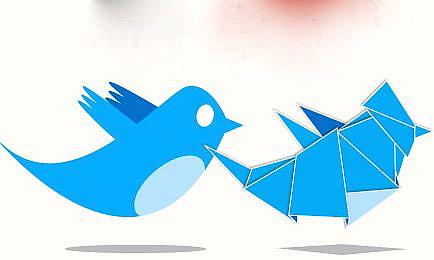When Editing Your Social Media Posts, Explain Yourself

Last week, I asked readers if they thought people should be allowed to delete their tweets. Jan Henderson at The Health Culture had an interesting response. As her blog’s name suggests, Henderson writes often about how we live in a culture that is suffused with the idea of health perfection, where illness is to be beaten at all costs and where, as she writes, “we take it for granted that the ‘healthy lifestyles’ mantra is the only explanation we need to account for the inequitable distribution of disease and mortality.” I asked her to write a guest post. Her thoughts are below.
Is it acceptable to delete a tweet?
I delete tweets if I am lucky enough to identify an error (such as an incorrect URL) soon enough to make the correction. I delete the original and send a new tweet with the correct information. I sometimes send a separate tweet that points this out. If many hours have already passed, I don’t bother to point out my mistake. Either way, this seems innocent enough.

Recently I deleted two tweets in which I had recommended a website I’d just discovered, Mercatornet. The About Us page said its purpose was “reframing ethical and policy debates in terms of human dignity, not dollars and cents or political calculation.” Sounded good to me.
After tweeting I read a little further on the site and discovered it was vehemently anti-gay marriage and made what I considered unfair claims. I deleted my two tweets and sent out a new tweet in which I acknowledged deleting the tweets, apologized, and explained why I’d changed my mind.
Until reading the post on Dr. Steve Balt, it had never occurred to me that deleting tweets might be unethical. The question would seem to be, “Where do we draw the line and what grounds do we use to make that decision?” An interesting question.
When former Congressman Anthony Weiner deleted a sexually suggestive tweet, was he committing an infraction against his constituents or was he simply realizing the error of his ways and attempting to change course? Does he even have the right to change course or do all tweets from public officials have to remain in the public domain – no matter how rash – simply because they come from elected representatives?
This may be part of a larger question about the permanence of the paper trail in the digital age. Should Mitt Romney, for example, have been allowed to replace computers used during his term as Massachusetts governor? Or does the public have a right to know, especially now that he’s running for President?
Balt is not a public official. Does he have the right to control how he is perceived in social media? Or do any tweets from him, no matter how ill considered he may regard them in retrospect, deserve to be preserved for all time because he is a practicing psychiatrist whose patients might want to judge him on his honesty and forthrightness?
In a study of the professional conduct of medical students, where professional conduct includes “being honest, acting with integrity … and adhering to an ethical code of conduct,” the factor most highly associated with unprofessional conduct was burnout. In the fast-paced, socially mediated information glut of Web 2.0, we’re all subject to moments of digital burnout. Balt is a practicing psychiatrist with clients, a professional newsletter, a very active blog and a social media presence. With that pace, a moment of burnout now and again should be expected. Perhaps the ideal thing would have been for him to send a tweet acknowledging his deletions.
Should doctors be held to high levels of integrity even as we watch politicians compete for four Pinocchios at the Washington Post?
Definitely.
But let’s not set the bar so high that we can’t be our occasionally fallible human selves in public.
Twitterigami image via Paddy Donnelly.

